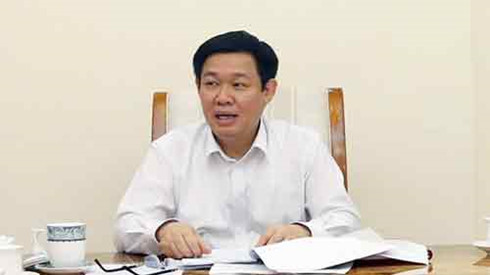Vietnam hopes to expand economic ties with RoK: Deputy PM
 |
He called on RoK businesses to invest more in areas like the manufacturing industry, electronics, automobiles, finance &banking, high quality services, creative products development and infrastructure, as well as startup projects.
The Deputy PM expressed his hope that giant RoK corporations’ investment will encourage small and medium-sized enterprises, as well as high technology firms from the country to do more businesses in Vietnam.
Deputy PM Hue noted that the two countries are experiencing a peak development in their relationship in all fields, with the RoK being the second largest ODA provider of Vietnam.
Since 2014, the RoK has always been the largest foreign investor in Vietnam with a total investment of over US$49 billion in 5,300 projects, he said.
In the first five months of this year, the RoK was also the largest investor at US$3.4 billion in 420 projects.
This shows the confidence of the RoK’s business in Vietnam’s economic prospects, he commented.
At the same time, the RoK is the third largest trade partner of Vietnam, with two-way trade reaching US$36.5 billion last year, he added.
Deputy PM Hue also pointed out that the Vietnam-RoK free trade agreement and the ASEAN-RoK free trade deal have laid the foundation for bilateral trade and investment ties in a win-win spirit.
Deputy PM Hue said he believes that two-way trade will reach US$70 billion in 2020 in a balanced direction. Vietnam wants to export more seafood, fruit, consumer goods, electronic products and accessories to the RoK, he said.
Together with efforts to complete its legal system, the Vietnamese Government is working hard to stabilise the macroeconomy and restructure the economy with the focus on State-owned enterprises and banking reform, alongside settling bad debts and public debts; thus creating a new status for the country to integrate into the world community and join regional and global production chains, stated the Deputy PM.
The RoK’s Ambassador to Vietnam Lee Hyuk held that specific efforts should be made to seek ways to further boost bilateral ties, suggesting that a cooperation axis should be created across politics, diplomacy and security to match the sound bilateral economic ties.
He proposed that the two countries focus on partnerships in the manufacturing industry, infrastructure and information and telecommunication technology, health care, and science and technology.
Meanwhile, Kang Seong Cheon, a representative from the RoK’s Ministry of Trade, Industry and Energy, said that it is necessary to expand investment affiliation activities to fully tap the advantages from free trade agreements, while continuing to create favourable business investment opportunities for enterprises from both countries.
What the stars mean:
★ Poor ★ ★ Promising ★★★ Good ★★★★ Very good ★★★★★ Exceptional
Latest News
More News
- Vietnamese businesses diversify amid global trade shifts (February 03, 2026 | 17:18)
- Consumer finance sector posts sharp profit growth (February 03, 2026 | 13:05)
- Vietnam and US to launch sixth trade negotiation round (January 30, 2026 | 15:19)
- NAB Innovation Centre underscores Vietnam’s appeal for tech investment (January 30, 2026 | 11:16)
- Vietnam moves towards market-based fuel management with E10 rollout (January 30, 2026 | 11:10)
- Vietnam startup funding enters a period of capital reset (January 30, 2026 | 11:06)
- Vietnam strengthens public debt management with World Bank and IMF (January 30, 2026 | 11:00)
- PM inspects APEC 2027 project progress in An Giang province (January 29, 2026 | 09:00)
- Vietnam among the world’s top 15 trading nations (January 28, 2026 | 17:12)
- Vietnam accelerates preparations for arbitration centre linked to new financial hub (January 28, 2026 | 17:09)
















 Mobile Version
Mobile Version